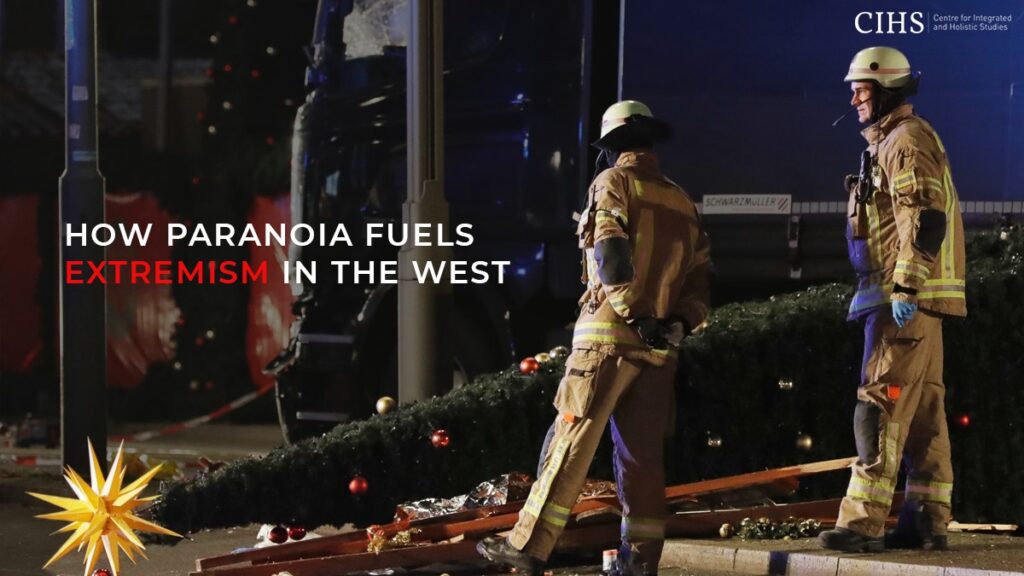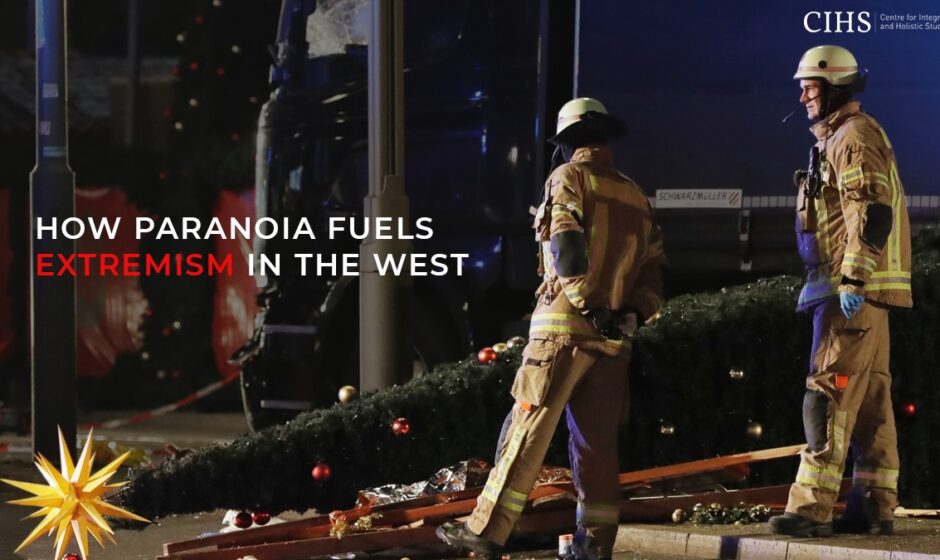Political leaders, irrespective of alignment, must reject zero-sum polarisation in favour of constructive engagement.
Rahul Pawa
In contemporary politics, the dichotomy of so-called “left” and so-called “right” often feels antiquated, especially in today’s age where these terms trace their origins to ancient seating arrangements in the French Estates-General.

Yet, this outdated framework persists, weaponised to sow division and fuel hysteria. A particularly troubling trend is how the so-called left amplifies fears of right-wing to stoke paranoia, demonise opposition, and justify authoritarian measures.
This approach had often skewed public perception, contributed to polarisation and even incited extremist acts. Case studies from United States, France, United Kingdom and other European nations highlight how this phenomenon unfolded with devastating outcomes.
Recently held US elections offered a stark example. In the lead-up, left-leaning media and political figures frequently portrayed right-wing factions as existential threats to democracy.
After Supreme Court’s controversial decision on gun control and abortion, fear-mongering narratives accused conservative groups of orchestrating a “rollback of rights.” Protests turned violent in some cities with activists attacking federal buildings and clashing with law enforcement.
Demonising right-wing ideological thought extended beyond policy critiques, painting all conservatives as complicit in fostering extremism. This framing ignored nuances of political diversity and fueled retaliatory violence such as targeting of conservative candidates campaign offices in swing states.
In France, narrative weaponisation during 2022 presidential elections against Marine Le Pen and National Rally party is illustrative. Left-leaning factions likened Le Pen’s platform to resurgence of France’s Vichy-era authoritarianism framing her as threat to democratic values. Media narratives blamed her rhetoric for purported rise in hate crimes, despite scant evidence linking her supporters to such incidents.
Simultaneously, left-wing protests turned violent, targeting police and municipal buildings in urban centres like Paris and Marseille. The overlooked irony is that these violent outbursts mirrored extremism that left purportedly opposed.
In United Kingdom, post-Brexit era saw left campaigners amplifying fears of xenophobia and regressive nationalism. Following murder of Labour Member of Parliament, Jo Cox in 2016, left-leaning media individuals and outlets portrayed Brexit movement as intrinsically tied to hate and division.
This framing extended into parliamentary debates where MPs opposed to Brexit were hailed as defenders of democracy against imagined and cooked up right-wing threats. The left’s relentless focus on demonising the rightist values and ideas overshadowed legitimate policy debates on sovereignty and economic strategy. This polarisation contributed to incidents like violent altercations outside polling stations during 2019 general elections.
Germany’s 2019 Halle synagogue attack became another flashpoint for left leaning strategists pointed to what they peddled as rising right-wing extremism to be dominant security threat. While this attack was a serious incident of antisemitic violence, narrative focus eclipsed broader challenge posed by jihadist terror. For instance, 2016 Berlin Christmas market attack where 12 lost lives and injured dozens, underscored the enduring threat of Islamist extremism.
Yet, narratives from left-leaning factions consistently prioritised framing right formations as more of immediate danger. This may be part of a design to gloss over Islamist-linked plots and incidents that represented significant public safety risks.
Across Europe, similar dynamics have unfolded. In Sweden, immigration debates have been marred by accusations of xenophobia directed at right-wing parties, stifling substantive discussions on integration and crime.
Giorgia Meloni’s leadership of Brothers of Italy party was met with relentless attempts to associate her with fascist ideologies. Such narratives not only polarised electorates but also led to erosion of public trust in democratic institutions. By framing right wing formations as omnipresent threat, left not only fueled cycles of insecurity and reactionary extremism but also covered up their own irrelevance.
Consequences of weaponising paranoia are far-reaching. Left groupings of every shade and variety have by design in fact exacerbated polarisation, radicalisation of individuals on both ends of the spectrum and undermined societal cohesion.
Cyclical nature of this rhetoric—where fear of the right justifies retaliatory measures—perpetuates violence and distracts from addressing genuine threats. For instance, 2023 French riots following a police shooting were framed by left-leaning media as response to systemic racism and right wing policies. This framing overshadowed law enforcement’s perspective and criminal elements involved in unrest further polarising public opinion.
To mitigate destructive impact of these narratives, a commitment to nuanced, fact-based discourse is essential. Media outlets may have to prioritize accuracy over sensationalism ensuring balanced reporting that reflects complexity of security challenges.
Civic education initiatives should empower citizens to critically evaluate political rhetoric, fostering resilience against manipulation. Political leaders, irrespective of alignment, must reject zero-sum polarisation in favour of constructive engagement.
Left campaigners weaponisation of fear highlights a troubling trend in present day politics. By demonising right political parties, individuals and groups what’s being done is to amplify paranoia and exacerbate cycles of extremism, undermining the democratic fabric of society.
Case studies from United States, France, United Kingdom and beyond reveal dangers of such narratives underscoring urgent need for evidence-based engagement and mutual respect.
In an era where simplistic labels fail to capture political realities, societies must transcend outdated binaries and recommit to principles of objectivity, transparency and fairness.
(Author is Research Director at Centre for Integrated and Holistic Studies, New Delhi based non-partisan think-tank)
(Author is Research Director at Centre for Integrated and Holistic Studies, New Delhi based non-partisan think-tank)



